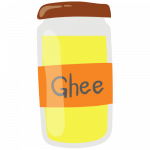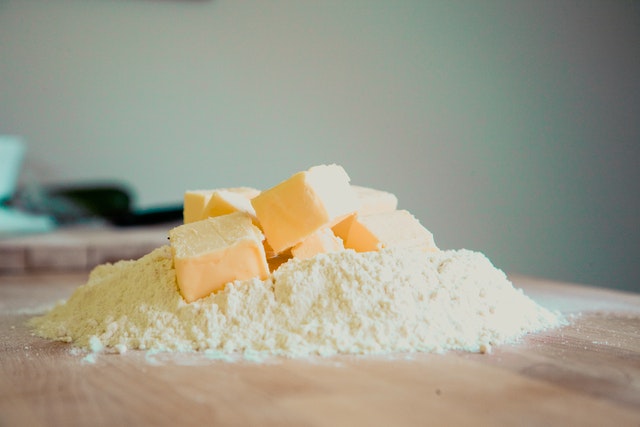Is Ghee Dairy Free?
Is Ghee Dairy Free?
People who have digestive woes frequently steer clear of dairy. The reality is that ghee is not dairy-free. Despite that, it may be suitable for individuals who are lactose-intolerant (and great for those on restrictive diets). Why exactly is that, anyway? Ghee has insignificant amounts of both casein and lactose. Casein is a kind of milk protein. Ghee is similar to butter in that it has limited amounts of both. If you’re allergic to casein, you should stay away from butter and ghee alike. Consuming either of these things may make you susceptible to the dangers of cross-contamination.
What Is Ghee Butter?
If you’ve paid any attention to the health and food scenes in recent years, you may be familiar with the term “ghee better.” You may not necessarily be able to define it on your own, however. Ghee butter, in a nutshell, is a type of butter that’s clarified. It undergoes extensive heating. Ghee butter producers, as a result, are able to extract lingering amounts of caramelized milk solids and water. This presents them with the “ghee.” This is fat that’s dense and highly concentrated.
If you churn either cream or milk for a significant stretch of time, it will split up into two distinct things. These things are buttermilk and butterfat. The former is a liquid. The latter is a solid. The idea behind ghee is basically to make this concept even more extensive.
Ghee is nothing new. It’s actually been a culinary staple in East Asia and India for hundreds of years. People appreciate it thanks to its taste. They often say that its flavor beats butter in the nuttiness department. They often say that its flavor beats butter in depth, too.
4 Benefits of Ghee
People appreciate ghee for many reasons. As indicated previously, it’s known for having aIt also brings some health advantages to the equation.
1. Pleasant Taste
While there is little dairy in ghee, most people still think the product tastes good. Depending how you cook it and what the recipe calls for, you may never even know the food doesn’t contain real butter.
2. Vitamin Rich
Ghee is brimming with vitamin D, vitamin E and vitamin A. These things can all enhance immunity greatly. Beyond that, they can even be beneficial for the complexion. If you long for skin that’s smooth, soft and luminous, then introducing some ghee butter to your diet may work out in your favor.
3. Better Gut Health
Don’t forget, either, that ghee has butyric acid. This is a kind of short-chain fatty acid that can strengthen digestive wellness. It can even minimize inflammation within your gastrointestinal tract. If you want to consume something that’s got lots of vitamins that are fat-soluble, it may be time for you to zero in on ghee butter.
4. Great for Heating with Food
There is another thing that makes ghee so enticing to health-conscious folks out there. If you’re interested in ghee and fitness diets, then you should think about its widely known high smoke point. The term “smoke point” refers to the phase in which fat or oil commence deconstruction. It refers to the phase in which fat or oil smoke during heating. This is the time that free radicals develop. Free radicals bring on oxidative stress inside of the body. A reduced smoke point makes fat or oil less optimal for cooking applications. That’s due to the fact that reduced smoke points are associated with the emergence of free radicals.
Is Ghee Right for You?
There are many people who have concerns that involve dairy consumption. That’s why it isn’t uncommon to hear people talking about steering clear of any and all dairy items. These individuals may be able to handle ghee butter more effectively. Note, though, that they may be able to handle butter overall, too. That’s thanks to the previously mentioned fact that butter just doesn’t have a lot of casein or lactose.
Many individuals out there have bodies that just do not react well to dairy intake. If you’re a part of that category, then you should test ghee out prior to determining whether it deserves a spot in your diet. Remember, too, that ghee is produced using butter. If you’re vegan, then you’ll have to search for a different fat substitute that doesn’t include any dairy whatsoever. Examples of these substitutes are extra virgin olive oil, avocado oil and, finally, coconut oil.
Be sure to learn about ghee prior to making it a staple in your meals.




